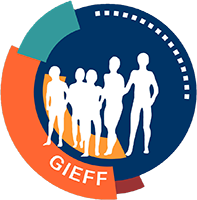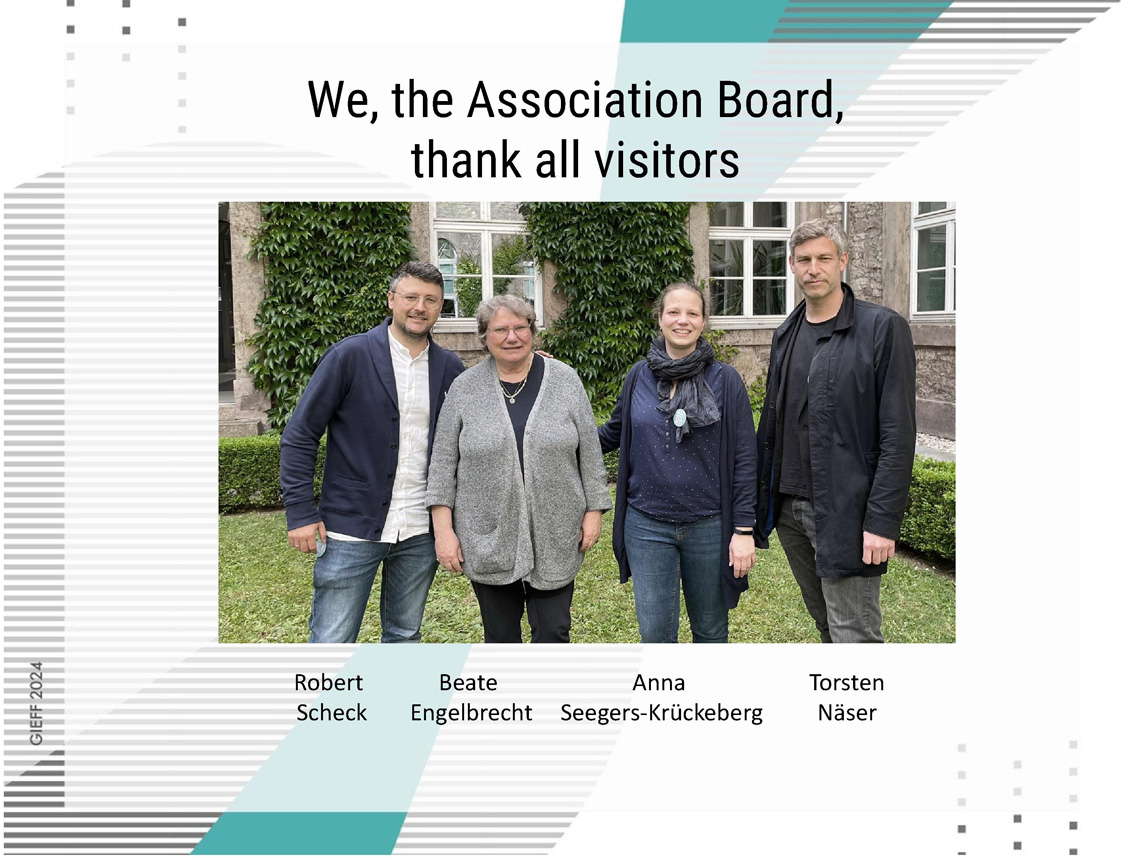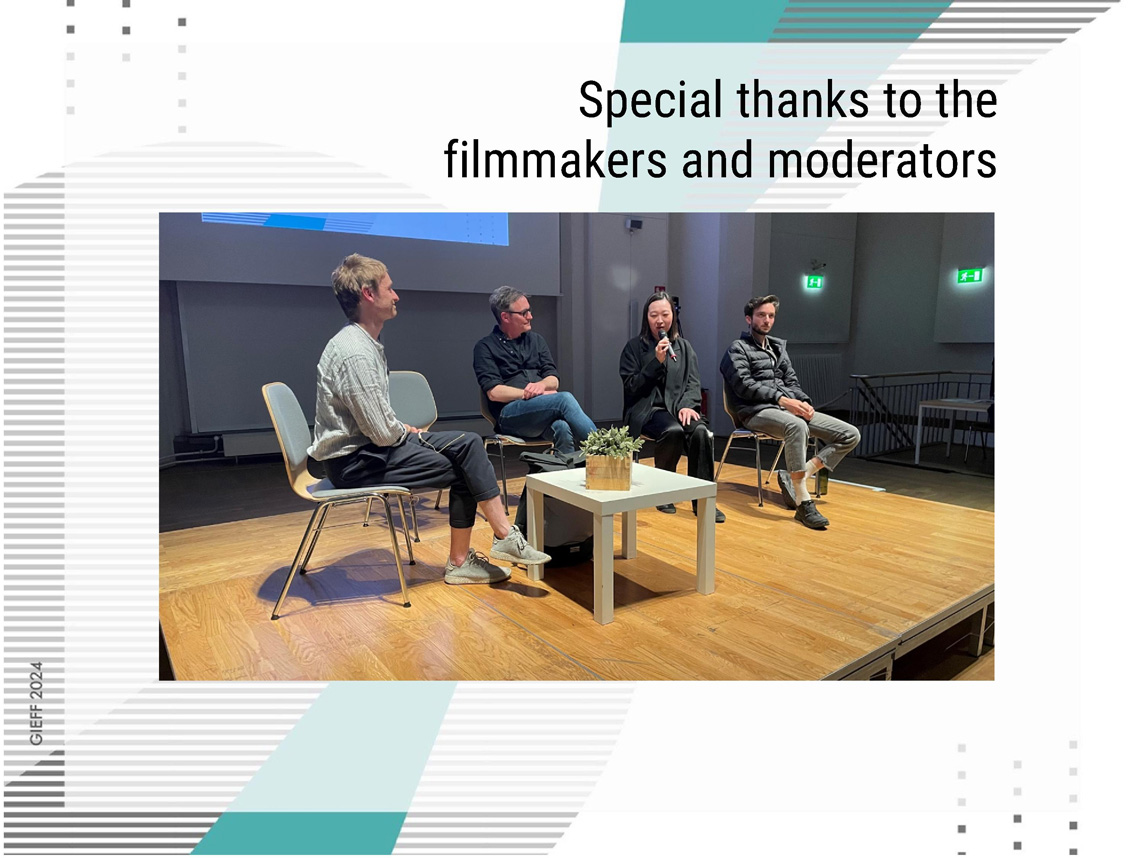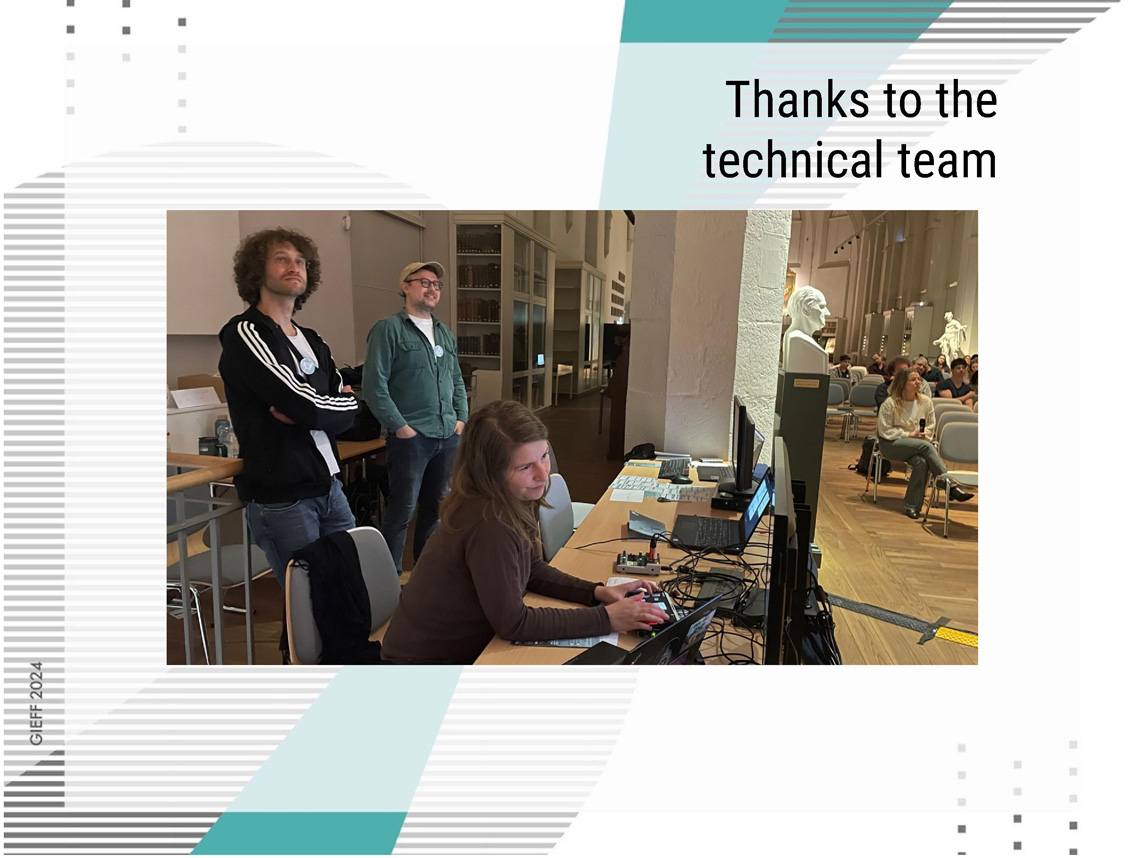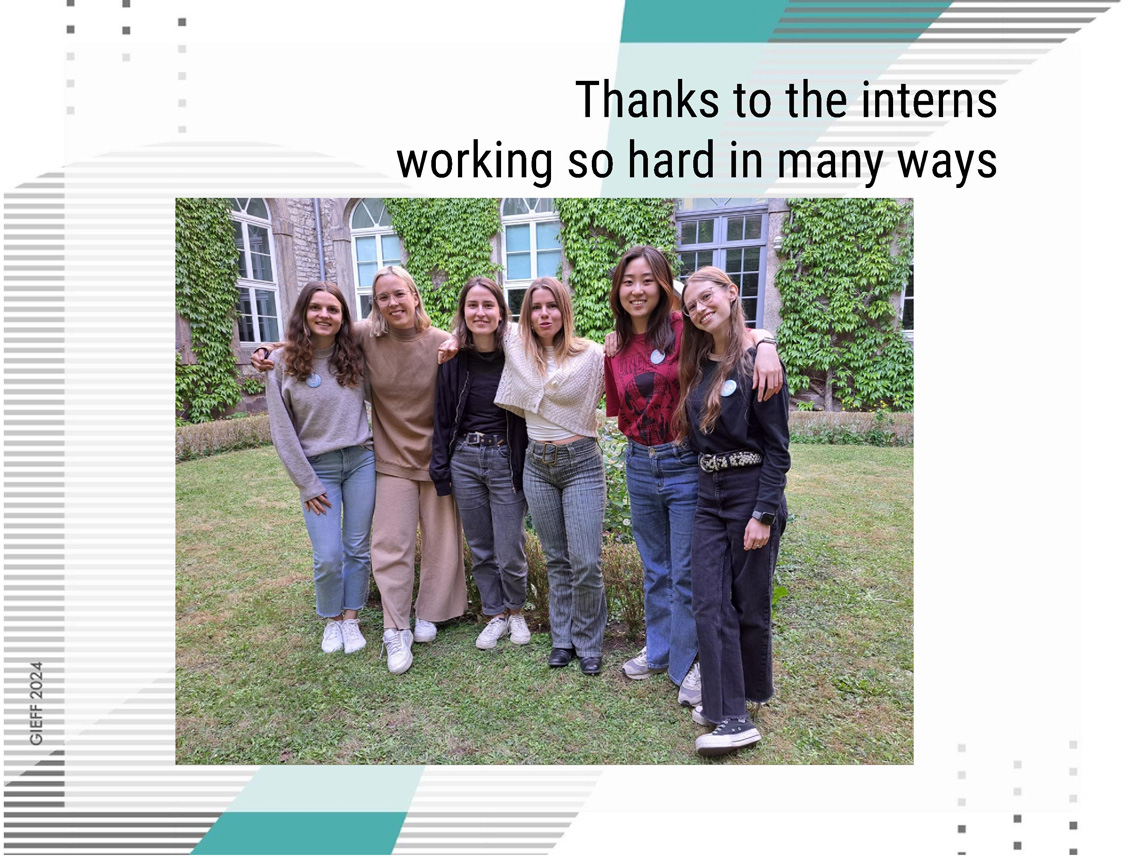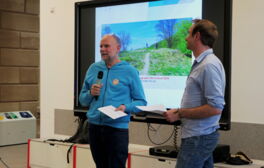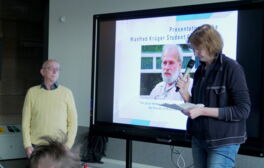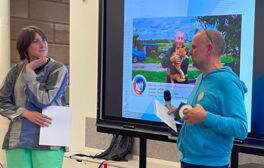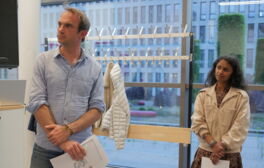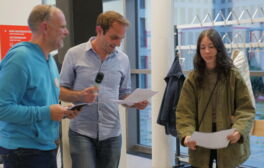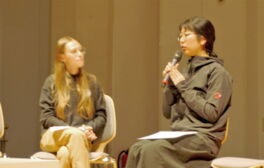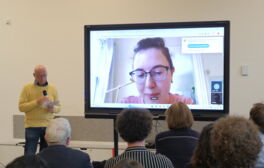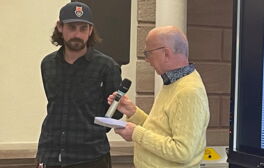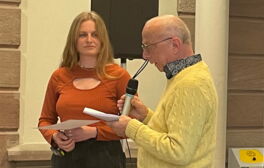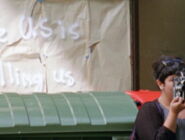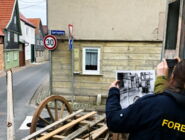Report on the 17th German International Ethnographic Film Festival
May 8th - May 12th, 2024
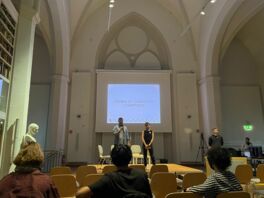
The festival is organised by an association - founded in May 2007 - and takes place in the heart of Göttingen.
The festival is a founding member of CAFFE - Coordinating Anthropological Film Festivals in Europe.
The Festival Programme was put together by an international selection committee, including both former and new members. Over 450 films and multimedia productions were submitted. A total of 63 films were selected, 20 for the student category, 28 for the main festival and 15 that were only screened online.
The festival began with the student competition, in which 20 films took part. The Student Award and the Manfred Krüger Award were each decided by a three-member international jury.
In addition to the presentation of new productions, the festival focused on various main topics: "Living in the Margins", "Creating Belonging", "Coping with Political Constraints", "Coping with Personal Fate", "Filmmaking Styles", "Struggling with Environmental Crisis", "Fragments of Memory", "Gender Resilience", "Post-colonial Experiments", "Working with Virtual Reality", "Performing Tradition", "Iranian Women Struggling", "Revolution for Life", "Last Refuge", "Traumatic Experiences", "Living in Mexico", and "Preserving Culture".
The subject of memory was addressed in several films, and there were repeated discussions about how memories can be portrayed in film.
GIEFF Student Award 2024 Ceremony
The Award Ceremony took place at Forum Wissen.
The event started with a guided tour of the Forum Wissen museum.
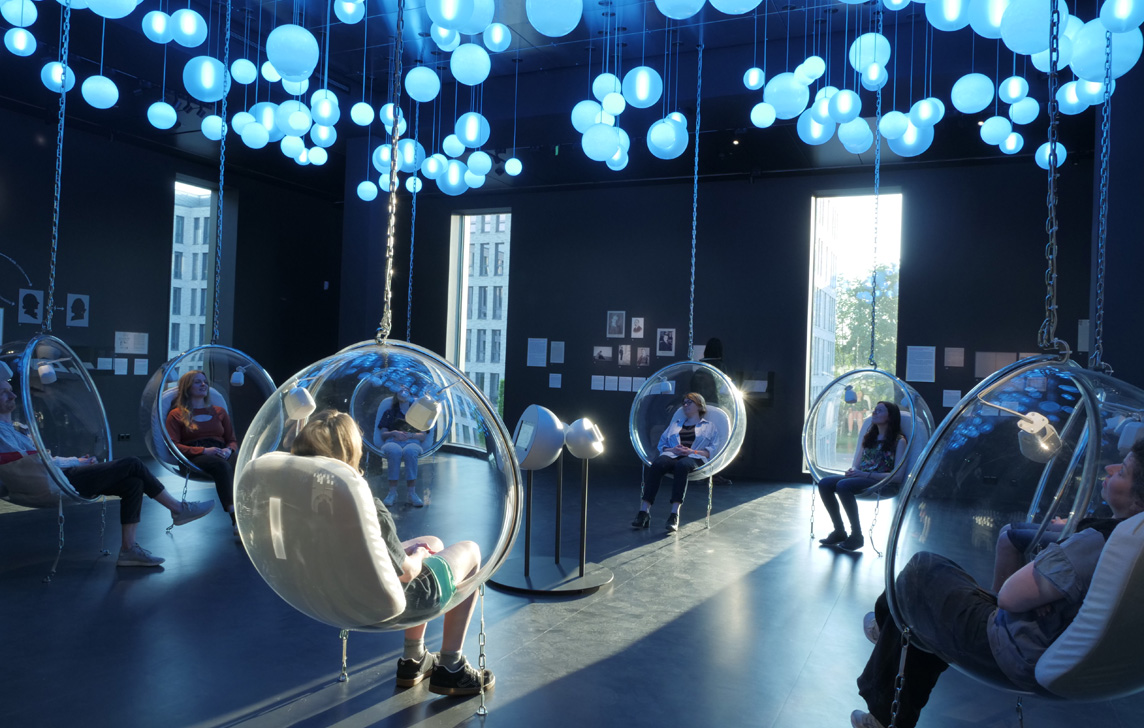
Thanks to all
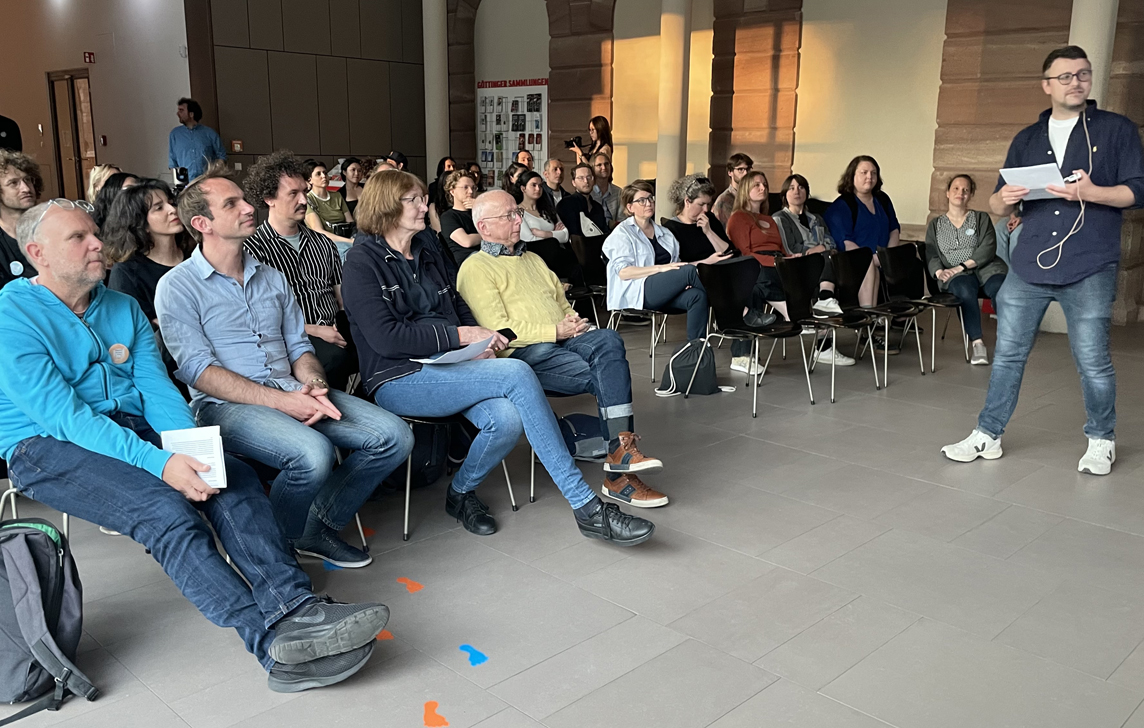
Robert Scheck opened the ceremony with a thank you note to the visitors, filmmakers, moderators, technical team and interns.
Everyone was committed to make GIEFF 2024 another enriching experience for all participants.
Special Recognition
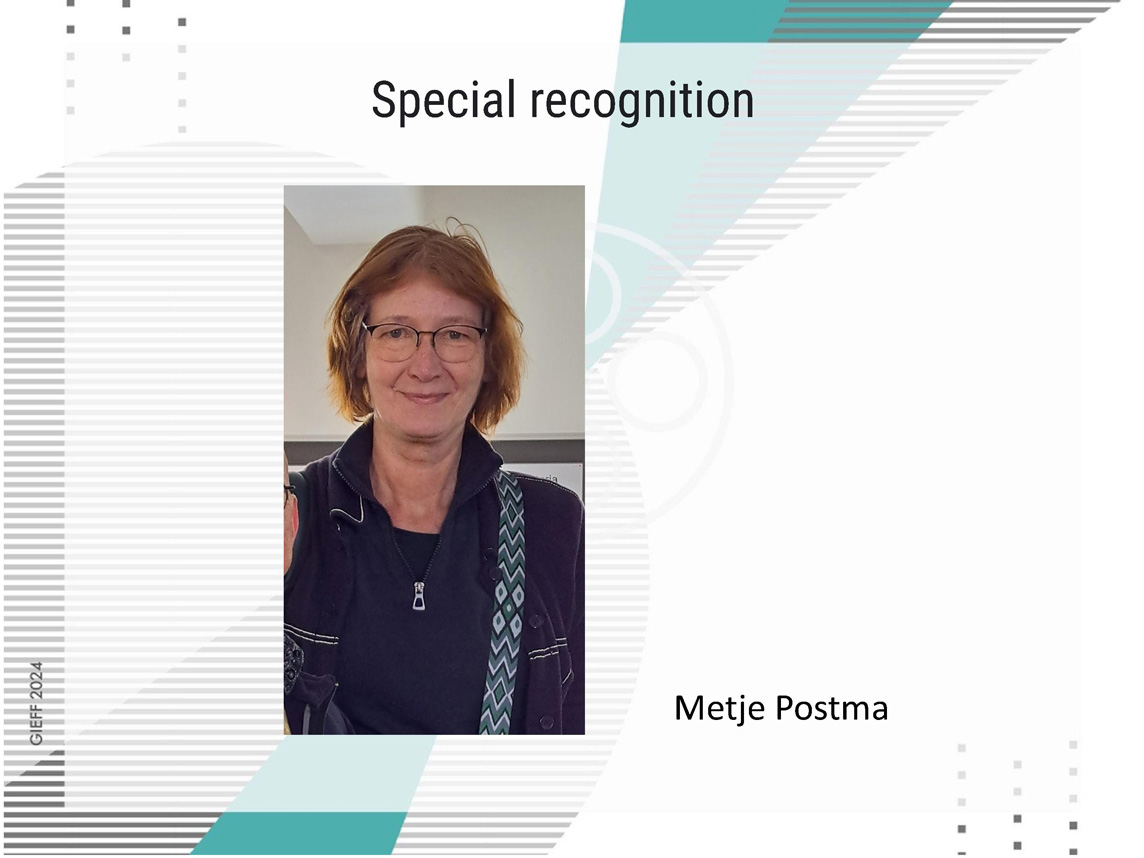
GIEFF decided to give special recognition to Metje Postma.
She has been committed to visual anthropology and ethnographic film for many years.
Metje has also supported the festival in various ways since its very beginning.
We thank her warmly.
Presentation of the Student Awards
Most of the jury members and filmmakers receiving awards or honourable mentions were present in Göttingen.
For more information about the films, you can find further details here.
The decisions regarding the Student Awards were made by two international juries:
GIEFF Student Award Jury 2024
Anne Chahine (Germany)
Martin Gruber (Germany)
Olivier Pollet (France)
Manfred Krüger Student Award Jury 2024
Metje Postma (The Netherlands)
Rosella Ragazzi (Norway)
Michael Schönhuth (Germany)
The winner of the GIEFF Student Award, Liv Kisby, attended the festival.
The winners of the three GIEFF honourable mentions, Ilakkiya Mariya Simon, Anna Dobos and Haruka Fukao, also visited the festival.
The winner of the Manfred Krüger Student Award, Pauline Shongov, attended the award ceremony online.
The winners of the two Manfred Krüger honourable mentions, Ignacio Rodriguez and Rachel Runesson, were present at the festival and award ceremony.
Discussing and Exchanging Ideas
Films from all Over the World
62 films from 45 countries, produced by filmmakers of 30 nationalities. The attending filmmakers answered questions after the screenings. Those unable to come to Göttingen were mostly connected online, allowing them to participate interactively in the festival.
Half of the filmmakers were present throughout the festival, so further discussions could take place later, allowing for additional engagement with the films.
Over 150 registered visitors attended the festival in Göttingen, coming from countries including: Chile, China, Germany, France, Cameroon, Canada, India, Japan, Mexico, the Netherlands, Norway, Switzerland, the United Kingdom and the USA.
Focal points 2024
This year, the international selection committee curated a fantastic program.
Habitats and the Environment: People live in very different environments - rural areas, cities, or isolated places like garbage dumps and ghettos.
The development of the environment plays an important role, including natural disasters and the exploitation of nature by profit-driven companies, industrialization, dam construction, or agricultural commercialization.
“Life on the Edge”: A recurring theme of the festival, from rice farmers or fishermen struggling to survive to seasonal workers or Afghan teenagers on the run. Films in the “Struggling with Environmental Crisis” category focused on the environmental impact of gold mining and deforestation in Brazil, while in Australia, a man fights against marine pollution and ghost nets that indiscriminately kill sea creatures.
Gender Destinies: People of all genders have specific experiences that impact their lives. In many cultures, women are confined to traditional roles within the family. However, women are also actively involved in various social settings. Insights into the experiences of migrants are just as valuable as those into the lives of LGBTQIAP+ people.
The theme "Gender Resilience" focused on the fate and struggles of women, including women fleeing Eritrea, women in Iran fighting for their children or their independence from gender roles, and women in Transylvania navigating a male-dominated society.
Worlds of Values: Exploring the diversity of belief systems deepens our understanding of others. For many, religion provides a crucial point of reference, especially in times of upheaval. Religion helps individuals find their identity, and rituals and religious practices provide security.
The focal points “Coping with Personal Fate” and “Beyond the Matter”, delved into traditional Japanese values rooted in Buddhism, examining their continuity in modern times. One film even portrayed a couple mourning the death of their children by scattering their ashes, a form of resistance to social norms in Japan.
Migration: Many people either choose to migrate or are forced to do so. Some move to another country to work, others flee their homelands due to conflict. Often, they end up in temporary refugee camps before finding safety. Migrants hope to feel at home, but for the second generation, this can be a complex challenge.
Migration was a recurring theme in the films, including stories of Afghan teenagers smuggling themselves into Europe, refugee activists fighting for a humane asylum system, or a US-American woman in South Korea who opens a diner to recreate the taste of home.
Memories: The ability to remember allows us to feel alive. Memories of the past help us locate ourselves in the present and guide our actions. The theme of memory presented unique methodological challenges in filmmaking.
Throughout the festival, the theme of memory appeared in various contexts. “Fragments of Memory” involved reassembling old films and writings. "Political Constraints” analyzed those affected in Sri Lanka, Chile, and Germany. “Postcolonial Experiments” involved reprocessing archival material about Namibia or Puerto Rico's occupation by the USA.
Evoking Memories in/through Visual and Digital Media
Throughout the festival, films dealing with memory were frequently shown and discussed.
The key question was how memory can be represented in film.
In addition to photography and interviews, the main focus was on re-enactment, animation and virtual reality.
Virtual Reality
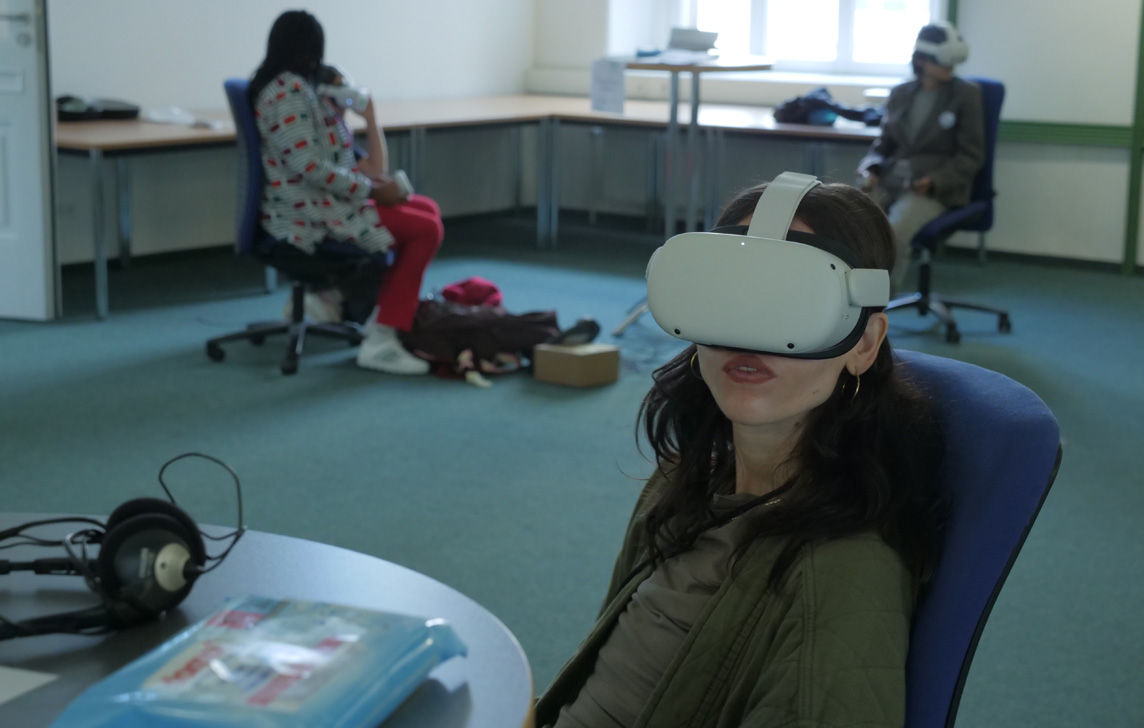
For the first time, GIEFF was presenting two Virtual Reality productions.
The Dugout Canoe https://www.gieff.de/11-05-2024-24.html#GIE24-1401
Talking about, looking at, relaxing from films
In the cafeteria, visitors and filmmakers had the opportunity to meet, chat, and discuss.
Students also interviewed several filmmakers as part of their university excursion.
These excursions offered spaces for discussions and informal meetings with guests.
Finally, visitors could relaxed outdoors in the small garden or on the steps of the Paulinerkiche.
A New Partnership: Forum Wissen
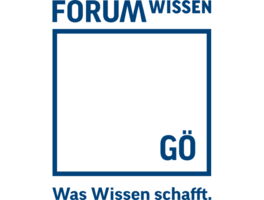
Forum Wissen, part of the University of Göttingen, is a place where knowledge is conveyed, reflected upon, discussed and created.
This year, for the first time, Forum Wissen and GIEFF e.V. decided to celebrate the Award Ceremony at Forum Wissen.
Additionally, Forum Wissen offered two guided tours during the festival.
Travelling GIEFF
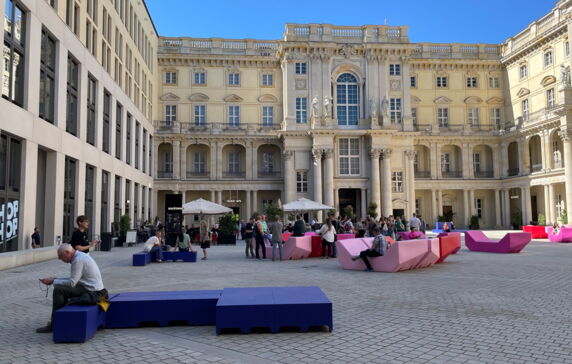
For several years, the festival's films have been travelling throughout Germany and internationally.
They are often shown at conferences, university seminars, and local cultural events.
If you are interested to organise a Travelling GIEFF please let us know: event@gieff.de
-
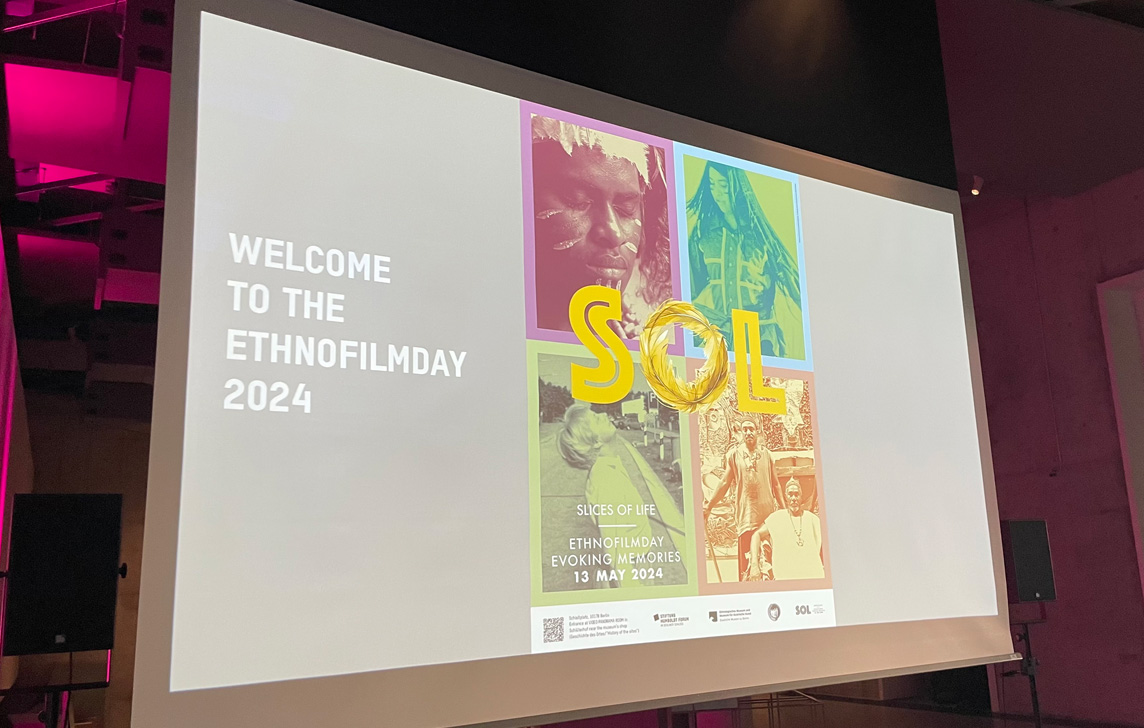
Travelling GIEFF -
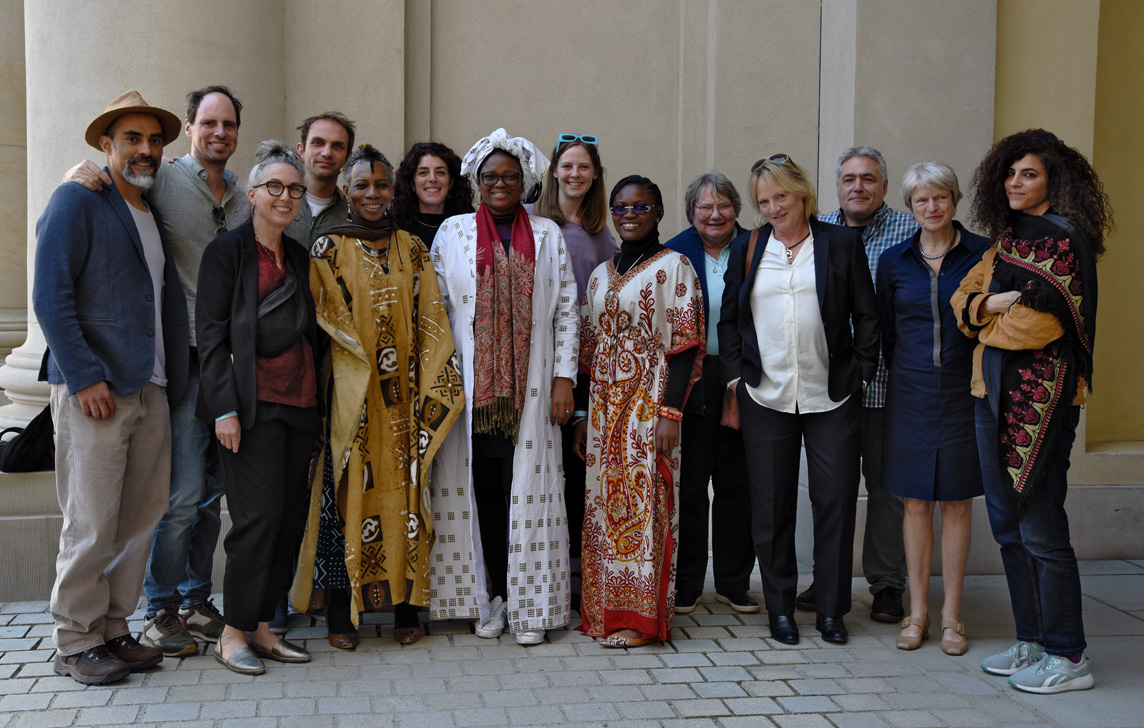
Participants
